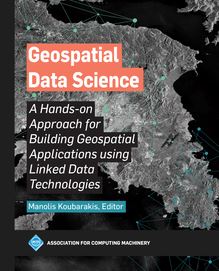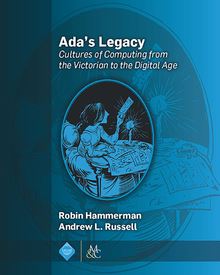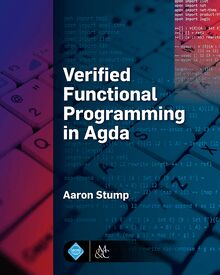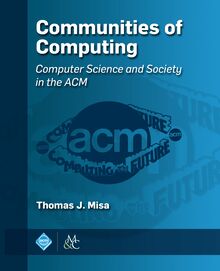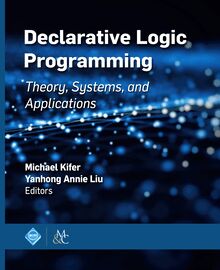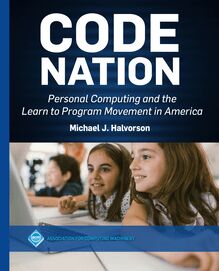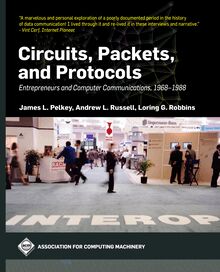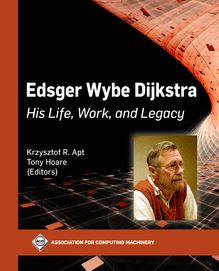-
 Univers
Univers
-
 Ebooks
Ebooks
-
 Livres audio
Livres audio
-
 Presse
Presse
-
 Podcasts
Podcasts
-
 BD
BD
-
 Documents
Documents
-
- Cours
- Révisions
- Ressources pédagogiques
- Sciences de l’éducation
- Manuels scolaires
- Langues
- Travaux de classe
- Annales de BEP
- Etudes supérieures
- Maternelle et primaire
- Fiches de lecture
- Orientation scolaire
- Méthodologie
- Corrigés de devoir
- Annales d’examens et concours
- Annales du bac
- Annales du brevet
- Rapports de stage
La lecture à portée de main
Vous pourrez modifier la taille du texte de cet ouvrage
Découvre YouScribe en t'inscrivant gratuitement
Je m'inscrisHeterogeneous Computing , livre ebook
Découvre YouScribe en t'inscrivant gratuitement
Je m'inscrisEn savoir plus
Vous pourrez modifier la taille du texte de cet ouvrage
En savoir plus

Description
If you look around you will find that all computer systems, from your portable devices to the strongest supercomputers, are heterogeneous in nature.
The most obvious heterogeneity is the existence of computing nodes of different capabilities (e.g. multicore, GPUs, FPGAs, …). But there are also other heterogeneity factors that exist in computing systems, like the memory system components, interconnection, etc. The main reason for these different types of heterogeneity is to have good performance with power efficiency.
Heterogeneous computing results in both challenges and opportunities. This book discusses both. It shows that we need to deal with these challenges at all levels of the computing stack: from algorithms all the way to process technology. We discuss the topic of heterogeneous computing from different angles: hardware challenges, current hardware state-of-the-art, software issues, how to make the best use of the current heterogeneous systems, and what lies ahead.
The aim of this book is to introduce the big picture of heterogeneous computing. Whether you are a hardware designer or a software developer, you need to know how the pieces of the puzzle fit together. The main goal is to bring researchers and engineers to the forefront of the research frontier in the new era that started a few years ago and is expected to continue for decades. We believe that academics, researchers, practitioners, and students will benefit from this book and will be prepared to tackle the big wave of heterogeneous computing that is here to stay.
- Preface
- Why Are We Forced to Deal with Heterogeneous Computing?
- Different Players: Heterogeneity in Computing
- Architecture: Heterogeneity in Design
- Programmability
- Research Directions
- References
- Index
- Author's Biography
Sujets
Informations
| Publié par | Association for Computing Machinery and Morgan & Claypool Publishers |
| Date de parution | 29 mai 2019 |
| Nombre de lectures | 0 |
| EAN13 | 9781450360982 |
| Langue | English |
| Poids de l'ouvrage | 2 Mo |
Informations légales : prix de location à la page 0,1598€. Cette information est donnée uniquement à titre indicatif conformément à la législation en vigueur.
Extrait
Heterogeneous Computing
ACM Books
Editor in Chief
M. Tamer Özsu, University of Waterloo
ACM Books is a series of high-quality books for the computer science community, published by ACM and many in collaboration with Morgan & Claypool Publishers. ACM Books publications are widely distributed in both print and digital formats through booksellers and to libraries (and library consortia) and individual ACM members via the ACM Digital Library platform.
Heterogeneous Computing: Hardware and Software Perspectives
Mohamed Zahran, New York University
2019
Making Databases Work: The Pragmatic Wisdom of Michael Stonebraker
Editor: Michael L. Brodie
2018
The Handbook of Multimodal-Multisensor Interfaces, Volume 2: Signal Processing, Architectures, and Detection of Emotion and Cognition
Editors: Sharon Oviatt, Monash University
Björn Schuller, University of Augsburg and Imperial College London
Philip R. Cohen, Monash University
Daniel Sonntag, German Research Center for Artificial Intelligence (DFKI)
Gerasimos Potamianos, University of Thessaly
Antonio Krüger, Saarland University and German Research Center for Artificial Intelligence
(DFKI)
2018
Declarative Logic Programming: Theory, Systems, and Applications
Editors: Michael Kifer, Stony Brook University
Yanhong Annie Liu, Stony Brook University
2018
The Sparse Fourier Transform: Theory and Practice
Haitham Hassanieh, University of Illinois at Urbana-Champaign
2018
The Continuing Arms Race: Code-Reuse Attacks and Defenses
Editors: Per Larsen, Immunant, Inc .
Ahmad-Reza Sadeghi, Technische Universität Darmstadt
2018
Frontiers of Multimedia Research
Editor: Shih-Fu Chang, Columbia University
2018
Shared-Memory Parallelism Can Be Simple, Fast, and Scalable
Julian Shun, University of California, Berkeley
2017
Computational Prediction of Protein Complexes from Protein Interaction Networks
Sriganesh Srihari, The University of Queensland Institute for Molecular Bioscience
Chern Han Yong, Duke-National University of Singapore Medical School
Limsoon Wong, National University of Singapore
2017
The Handbook of Multimodal-Multisensor Interfaces, Volume 1: Foundations, User Modeling, and Common Modality Combinations
Editors: Sharon Oviatt, Incaa Designs
Björn Schuller, University of Passau and Imperial College London
Philip R. Cohen, Voicebox Technologies
Daniel Sonntag, German Research Center for Artificial Intelligence (DFKI)
Gerasimos Potamianos, University of Thessaly
Antonio Krüger, Saarland University and German Research Center for Artificial Intelligence
(DFKI)
2017
Communities of Computing: Computer Science and Society in the ACM
Thomas J. Misa, Editor, University of Minnesota
2017
Text Data Management and Analysis: A Practical Introduction to Information Retrieval and Text Mining
ChengXiang Zhai, University of Illinois at Urbana–Champaign
Sean Massung, University of Illinois at Urbana–Champaign
2016
An Architecture for Fast and General Data Processing on Large Clusters
Matei Zaharia, Stanford University
2016
Reactive Internet Programming: State Chart XML in Action
Franck Barbier, University of Pau, France
2016
Verified Functional Programming in Agda
Aaron Stump, The University of Iowa
2016
The VR Book: Human-Centered Design for Virtual Reality
Jason Jerald, NextGen Interactions
2016
Ada’s Legacy: Cultures of Computing from the Victorian to the Digital Age
Robin Hammerman, Stevens Institute of Technology
Andrew L. Russell, Stevens Institute of Technology
2016
Edmund Berkeley and the Social Responsibility of Computer Professionals
Bernadette Longo, New Jersey Institute of Technology
2015
Candidate Multilinear Maps
Sanjam Garg, University of California, Berkeley
2015
Smarter Than Their Machines: Oral Histories of Pioneers in Interactive Computing
John Cullinane, Northeastern University; Mossavar-Rahmani Center for Business and Government, John F. Kennedy School of Government, Harvard University
2015
A Framework for Scientific Discovery through Video Games
Seth Cooper, University of Washington
2014
Trust Extension as a Mechanism for Secure Code Execution on Commodity Computers
Bryan Jeffrey Parno, Microsoft Research
2014
Embracing Interference in Wireless Systems
Shyamnath Gollakota, University of Washington
2014
Heterogeneous Computing
Hardware & Software Perspectives
Mohamed Zahran
New York University
ACM Books #26
Copyright © 2019 by the Association for Computing Machinery
All rights reserved. No part of this publication may be reproduced, stored in a retrieval system, or transmitted in any form or by any means—electronic, mechanical, photocopy, recording, or any other except for brief quotations in printed reviews—without the prior permission of the publisher.
Designations used by companies to distinguish their products are often claimed as trademarks or registered trademarks. In all instances in which the Association for Computing Machinery is aware of a claim, the product names appear in initial capital or all capital letters. Readers, however, should contact the appropriate companies for more complete information regarding trademarks and registration.
Heterogeneous Computing: Hardware and Software Perspectives
Mohamed Zahran
books.acm.org
http://books.acm.org
ISBN: 978-1-4503-6097-5 hardcover
ISBN: 978-1-4503-6233-7 paperback
ISBN: 978-1-4503-6100-2 eBook
ISBN: 978-1-4503-6098-2 ePub
Series ISSN: 2374-6769 print 2374-6777 electronic
DOIs:
10.1145/3281649 Book
10.1145/3281649.3281653 Chapter 3
10.1145/3281649.3281650 Preface
10.1145/3281649.3281654 Chapter 4
10.1145/3281649.3281651 Chapter 1
10.1145/3281649.3281655 Chapter 5
10.1145/3281649.3281652 Chapter 2
10.1145/3281649.3281656 References/Index/Bio
A publication in the ACM Books series, #26
Editor in Chief: M. Tamer Özsu, University of Waterloo
This book was typeset in Arnhem Pro 10/14 and Flama using ZzTEX.
First Edition
10 9 8 7 6 5 4 3 2 1
To my family, without whom I wouldn’t have existed in the first place and wouldn’t have managed through this life.
Contents
Preface
Chapter 1 Why Are We Forced to Deal with Heterogeneous Computing?
1.1 The Power Issue
1.2 Heterogeneity beyond Our Control
1.3 Heterogeneity within Our Control
1.4 Seems Like Part of a Solution to Exascale Computing
Chapter 2 Different Players: Heterogeneity in Computing
2.1 Multicore
2.2 GPUs
2.3 FPGA
2.4 Automata Processors
2.5 Neuromorphic Chips
2.6 Other Accelerators
2.7 Mix-And-Match
2.8 In Conclusion
Chapter 3 Architecture: Heterogeneity in Design
3.1 Memory System
3.2 Interconnect
3.3 Examples of Supercomputers
3.4 Security Challenges Facing Heterogeneous Computing
3.5 Bandwidth
3.6 In Conclusion
Chapter 4 Programmability
4.1 Wish List of a Programmer
4.2 Psychology of Programming
4.3 What Do We Have? The Current Status Quo
4.4 In Conclusion
Chapter 5 Research Directions
5.1 Processing-in-Memory (PIM) / Near-Data-Processing (NDP)
5.2 Exascale Computing
5.3 Neuromorphic Chips
5.4 Quantum Computing
References
Index
Author‘s Biography
Preface
The term heterogeneous computing has become famous lately (lately, meaning in the last five years!). It started infiltrating many articles. Research papers have been, and are still being, written about heterogeneous computing and its implications on both software and hardware. The definition of this term is quite straightfor-ward: e xecuting programs on a computing platform with computing nodes of different characteristics. What is tricky is whether this is a good thing or a bad thing.
From a hardware perspective, as we will see later in this book, it is a good thing. Each computing node is efficient in specific types of applications. Efficiency here means it gets the best performance (e.g., speed) with lowest cost (e.g., power). This excellence in price-performance is very much needed in our current era of big data, severe power consumption, and the road to exascale computing. So if we can assign to each node the part of the program that it excels at, then we get the results of price-performance, and this is the main challenge facing the software community.
From a software perspective, heterogeneous computing seems like bad news because it makes programming much more challenging. As a developer, you have way more tasks than with traditional homogeneous computing. You need to know about different execution units, or at least learn about the computing nodes in the system you are writing code for. Then you need to pick algorithms to make your program, or different parts of your program, suitable for these nodes. Finally, you need to tweak your code to get the needed performance by overcoming many bottlenecks that certainly exist in heterogeneous computing, like communication overhead between the different units, overhead of creating threads or processes, management of memory access of those different units, and so on.
We cannot then say that heterogeneous computing is good or bad news. But we can say that heterogeneous computing is now the norm and not the exception. It is here, it will continue to be here, and we need to deal with it. But how do we deal with it? This is the topic of this book.
This book discusses the topic of heterogeneous computing from different angles: hardware challenges, current hardware state-of-the-art, software issues, how to make the best use of the current heterogeneous systems, and what lies ahead. All the systems we use, from portable devices to supercomputers, embody some type of heterogeneity. The main reason for that is to have good performance with power efficiency. However, this opens the door to many challenges that we need to deal with at all levels of the computing stack: from algorithms all the way to process technology. The aim of this book is to introduce heterogeneous computing in the big picture. Whether you are a hardware designer or a software developer, you need to know ho
-
 Univers
Univers
-
 Ebooks
Ebooks
-
 Livres audio
Livres audio
-
 Presse
Presse
-
 Podcasts
Podcasts
-
 BD
BD
-
 Documents
Documents
-
Jeunesse
-
Littérature
-
Ressources professionnelles
-
Santé et bien-être
-
Savoirs
-
Education
-
Loisirs et hobbies
-
Art, musique et cinéma
-
Actualité et débat de société
-
Jeunesse
-
Littérature
-
Ressources professionnelles
-
Santé et bien-être
-
Savoirs
-
Education
-
Loisirs et hobbies
-
Art, musique et cinéma
-
Actualité et débat de société
-
Actualités
-
Lifestyle
-
Presse jeunesse
-
Presse professionnelle
-
Pratique
-
Presse sportive
-
Presse internationale
-
Culture & Médias
-
Action et Aventures
-
Science-fiction et Fantasy
-
Société
-
Jeunesse
-
Littérature
-
Ressources professionnelles
-
Santé et bien-être
-
Savoirs
-
Education
-
Loisirs et hobbies
-
Art, musique et cinéma
-
Actualité et débat de société
- Cours
- Révisions
- Ressources pédagogiques
- Sciences de l’éducation
- Manuels scolaires
- Langues
- Travaux de classe
- Annales de BEP
- Etudes supérieures
- Maternelle et primaire
- Fiches de lecture
- Orientation scolaire
- Méthodologie
- Corrigés de devoir
- Annales d’examens et concours
- Annales du bac
- Annales du brevet
- Rapports de stage
